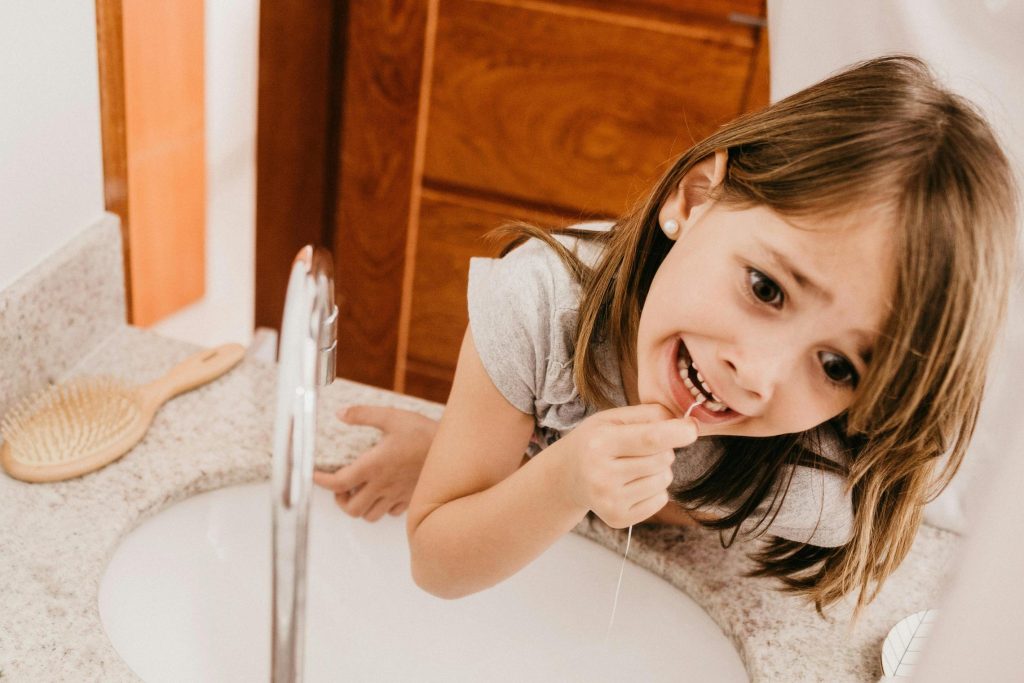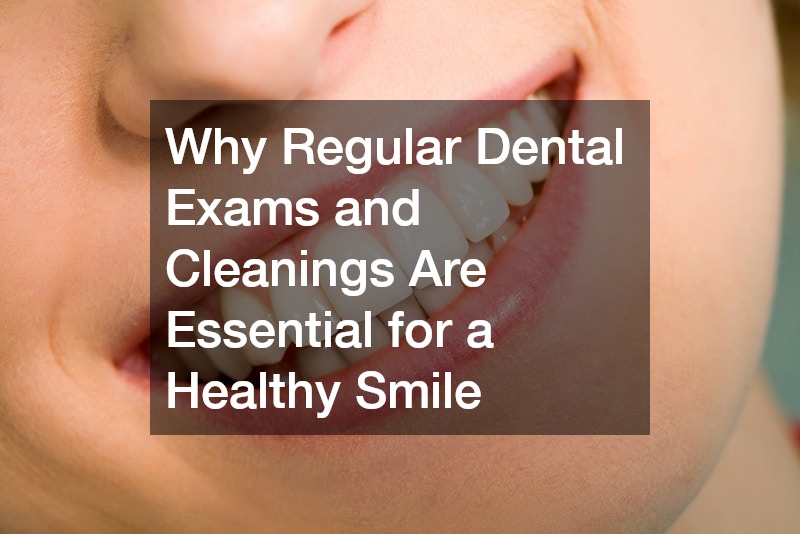As parents, we have a responsibility to ensure the health and well-being of our children. It is important to take care of your child’s dental health. This is something that many parents overlook in the early years. Good dental habits will lead to healthy teeth and gums for a lifetime. Early oral hygiene education is essential for the prevention of future dental problems and for instilling a positive attitude towards dental care. This article will help you introduce your children to key dental habits, from regular brushing and scrubbing to visits to the dentist. Understanding the basics of paediatric dental care will ensure that your child has good oral health for their entire life, whether you are looking for an affordable dentist or a high-quality local paediatric dentist.
Why Is Daily Brushing So Crucial?

The Benefits of Regular Brushing
Brushing teeth regularly is one of the most important habits children can develop. Brushing their teeth regularly removes plaque and prevents cavities. It also ensures they stay healthy and clean. Dental professionals say that daily brushing protects children against tooth decay and gum diseases, which are prevalent in young children. Brushing improves their appearance and prevents bad breath. Early brushing teaches children the importance of maintaining their teeth and helps them build a foundation for good oral hygiene. It is recommended that kids brush their teeth twice a day for optimal results.
The Ideal Time to Brush
Brushing your child’s teeth is best done in the morning or before going to bed. Brushing your teeth in the morning will remove any bacteria that has accumulated overnight, and keep the mouth fresh. Brushing your teeth before going to bed is also important. It removes all the food particles from the day and helps prevent plaque buildup. By teaching your child to brush their teeth at specific times, you will establish consistency and make it part of the daily routine. Parents should supervise their child’s brushing until they can do it on their own, which is usually around age seven or eight. Brushing regularly helps to maintain your child’s beautiful smile, and also contributes to their oral health.
Choosing the Right Toothbrush for Kids
It is important to select a toothbrush that’s appropriate for your child’s age and dental growth. For young children, a soft-bristled brush with a small handle is best. It allows for a gentle clean and access to the entire mouth. Also, the size and shape of the handle are important. It will be easier for your child’s grip to use a toothbrush that has an ergonomic handle. There are fun character brushes for toddlers that make brushing more enjoyable. Replace your toothbrush every 3 to 4 months or earlier if you notice the bristles fraying.
When Should Kids Start Flossing?

Introducing Flossing to Your Little One
For healthy teeth, flossing is as important as brushing. Children should start flossing when they have two teeth touching each other. This is usually around age three. Early instruction in flossing can help prevent plaque from building up between teeth, and can also help your child avoid cavities where a toothbrush cannot reach. Some parents find that dental floss picks are easier for their children to use. Consult a paediatric dentist about the appropriate technique for your child.
How to Teach Proper Flossing to Children
If you are teaching your child to floss, be sure to explain the correct technique so that they don’t hurt their gums. The child should gently move the floss between the teeth using a sawing movement. They should not push the floss into the gums. The floss should be gently curved around each tooth into a C shape and then slid up and down between the teeth. Correct flossing will help to prevent plaque accumulation and ensure that your child’s mouth is thoroughly cleaned. Paediatric dentistry is incomplete without flossing.
Selecting the Right Floss for Your Child
There are many types of floss, including unwaxed and flavoured varieties. Children are often advised to use waxed floss, which is more flexible and easier to slip between teeth. Flavoured floss will make flossing more fun for your child and encourage them to do it more often. For younger children, floss picks are available to help them floss. As your child gets older and more confident with flossing, they can switch to regular dental floss. Your child’s dentist may suggest specific products to suit their needs.
How Does Diet Impact Dental Health?
Foods That Benefit Your Child’s Teeth
The diet of your child is important for their dental health. A balanced, healthy diet is essential for strong gums and teeth. Calcium-rich foods, like milk, cheese and yoghurt, help to maintain healthy enamel. Carrots and celery are good for teeth cleaning and can stimulate saliva, which neutralises acids in the mouth. Oranges and strawberries are also high in vitamin C. By ensuring your child consumes a wide variety of foods rich in nutrients, you can help reduce the risk of dental problems and tooth decay.
The Dangers of Sugary Snacks
Some foods are good for your dental health while others are bad. Sugary drinks and snacks are the leading cause of dental decay among children. Sugar is a food source for bacteria in the mouth, which produces acid. This acid erodes enamel and causes cavities. Sugary snacks such as sodas, lollies and biscuits should be consumed moderately. It is important to inform your child of the dangers of too much sugar consumption and encourage them to choose healthier alternatives, such as fruit and water. Sugary foods should be limited to ensure your child’s dental health.
Striking the Right Balance with Diet
Balanced diets are essential for overall health and dental health. To ensure that children get the vitamins and minerals they need for healthy teeth, children should consume fruits, vegetables and whole grains. Early on, it’s important to develop healthy eating habits. Encourage your child to limit their snacking between meals and encourage them to eat at regular intervals. Water is good for your teeth. Drinking water helps to rinse out the mouth, remove food particles and protects them.
How Often Should Kids See a Dentist?
The Importance of Regular Dental Check-Ups
For healthy teeth and gums, regular dental visits are essential. Paediatric dentistry guidelines recommend that children see a dentist before their first birthday and then every six months thereafter for routine checkups. These checkups allow dentists to detect problems such as gum disease, cavities or misaligned teeth. They can also intervene early before they become worse. Regular dental cleanings remove plaque and tartar, which reduces the risk of gum disease and cavities. You may need to seek out a dentist who is affordable or a specialist for more advanced procedures such as a bridge or other procedures.
Selecting the Right Paediatric Dentist
It’s important to select a paediatric dentist when choosing a dentist for your children. Paediatric dentists are trained to handle the unique dental issues of children, ranging from teething through to adolescent dental problems. Finding a paediatric dentist that will make your child feel safe and comfortable is important. Find a paediatric dentist that has experience with your child’s age group and provides a warm atmosphere. The best paediatric dental professionals will provide a positive environment that will set the tone for good dental health throughout your child’s life.
Preparing Your Child for a Dental Visit
It can be a stressful experience to take your child to the dental office for the first time. Talk about the dentist visit in a positive, reassuring manner before your child goes. Explain to your child that the dentist is there to keep their teeth healthy and they shouldn’t be afraid. To familiarise your child with the process, you can read books or view videos. Also, schedule the first appointment at a time that they will not be too tired or hungry. A positive and calm approach can help to ease the nervousness and create a positive experience.
How to Encourage Healthy Dental Habits at Home
Setting a Good Example for Your Child’s Oral Health
It’s vital to set a good example for your children by exhibiting healthy dental habits. Make dental care part of your daily routine and show your child the proper way to brush their teeth and floss. Children are more likely to adopt good habits when they see their parents brushing and flossing their teeth. Setting a good example will not only help your child to develop healthy habits, but it will also reinforce the importance of dental hygiene for everyone in the family.
Making Brushing Fun for Kids
There are many ways to make brushing more enjoyable for children. Consider letting your child pick their own toothbrush and playing their favourite music while they brush. This will make the experience more fun. Many apps and games make brushing an interactive experience. Use stickers or rewards as a way to encourage your child to brush their teeth regularly. It is important to make dental hygiene a fun part of your child’s daily routine.
Utilising Dental Education Tools
Many dental education materials are available to help your child learn about the importance of oral hygiene. Fun and interactive books, videos, and games can be used to make dental care education more engaging. Charts can be used to keep track of your child’s brushing, flossing, and other habits. You can reward them for their consistent efforts. You can encourage your child to take charge of their oral health by teaching them about the negative consequences of bad dental habits, and the positive benefits of good dental habits.
Handling Dental Emergencies
Recognising Dental Emergencies
Prepare yourself for unexpected dental emergencies. Dental emergencies can include severe pain, chipped or knocked out teeth, and even knocked out teeth. If you know how to deal with these situations, your child will receive prompt treatment. If you have a tooth that has been knocked out, place it in the socket as soon as possible or moisten it in milk before contacting the best paediatric dentists. You can provide pain relief to your child and contact the dentist right away if they are experiencing tooth pain. You can protect your child’s oral health by acting quickly.
Immediate Steps to Take in a Dental Emergency
Stay calm and act quickly if your child has a dental emergency. If you lose a tooth, rinse your mouth with water and apply pressure to stop the bleeding. Seek immediate dental attention. Save the chipped piece of the tooth and consult a dentist. Rinsing your mouth with warm, salty water can temporarily relieve severe toothaches. However, you will need to visit a dentist for further evaluation. You should also have a first aid kit ready to address oral problems. For any dental emergency, it is important to know where to go for help.
Why Timely Dental Consultation Is Crucial
It is vital that you contact your local dentist immediately if any of these symptoms occur: severe pain, a visible cracked tooth, or signs of infection such as fever or swelling. It’s always best to seek treatment sooner rather than later to avoid complications that could worsen the condition. Timely consultation can help prevent further damage and ensure that your child’s oral health is properly managed.
Fluoride: Protecting Your Child’s Teeth
Fluoride plays a crucial role in strengthening enamel and preventing cavities. Found in drinking water, toothpaste, and fluoride treatments, it helps children’s teeth resist acids produced by bacteria, which can lead to decay. Dentists often recommend fluoride treatments for children at higher risk of cavities, making it an essential element in maintaining strong and healthy teeth.
Sources of Fluoride for Kids
Fluoride is available in several forms: fluoridated water, fluoride toothpaste, and professional fluoride treatments. Ensure that your child receives enough fluoride to protect their teeth, but be mindful of not swallowing toothpaste, as excessive fluoride may cause fluorosis. Your dentist can guide you on the right amount of fluoride for your child’s specific needs.
Using Fluoride Safely and Effectively
Using fluoride correctly is key to maximising its benefits. Encourage your child to use only a small amount of fluoride toothpaste and supervise their brushing to prevent swallowing. Professional fluoride treatments from your dentist are a safe and effective way to further protect your child’s teeth.
Improving Dental Posture in Kids
Poor dental habits such as mouth breathing or thumb sucking can impact your child’s dental development. Thumb sucking can lead to misaligned teeth, while mouth breathing can dry out the mouth, increasing the risk of cavities. Early detection and correction of these habits are vital for your child’s oral health.
Teaching Your Child to Maintain Good Oral Posture
Talk to your child about breaking bad habits like thumb sucking. Paediatric dentists can offer guidance on how to stop thumb sucking and encourage proper oral habits. For mouth breathing, help your child focus on breathing through their nose, which will prevent dry mouth and protect their teeth.
Promote Correct Posture Habits
To promote healthy dental posture, encourage your child to breathe through their nose and keep their mouth shut, especially during physical activities. Positive reinforcement such as rewards or gentle reminders can help your child develop these healthy habits.
Do Kids Need Dental Sealants?
Dental sealants are thin coatings applied to the chewing surfaces of back teeth to protect against plaque and bacteria. They are particularly beneficial for children, whose molars are more prone to cavities.
The Advantages of Dental Sealants
Sealants provide an effective barrier that protects the grooves of molars from decay. They are especially useful for children still learning to brush properly, as these areas are difficult to clean. Paediatric dentists often recommend sealants to prevent cavities in children.
Application and Care
Sealants are typically applied when a child’s permanent molars are fully developed, usually around age 6 or 7. They can last several years, but should be checked during regular dental cleanings to ensure they are still intact.
Protecting Teeth During Sports
Sports-related injuries pose significant risks to children’s teeth. Falls, collisions, or contact with sports equipment like baseballs can cause chipped, cracked, or knocked-out teeth. Children who participate in contact sports or activities with a high risk of falls are more likely to experience these injuries.
The Importance of Mouthguards for Kids
A custom-made mouthguard is essential to protect your child’s mouth during sports. Mouthguards absorb the impact of blows to the face, reducing the risk of dental injuries. Sports such as hockey, basketball, and football particularly benefit from mouthguard use. A good mouthguard can prevent costly and painful dental treatments, such as replacing damaged teeth or bridges.
Choosing the Right Mouthguard for Your Child
When choosing a mouthguard, ensure it fits comfortably and provides full protection. Mouthguards come in various forms, including stock, boil-and-bite, and custom-fitted options. Custom-made mouthguards offer the best fit and protection for your child’s unique smile.
Final Thoughts
Instilling good dental habits in your child’s routine is an investment in their future oral care. Consistent brushing, regular dentist visits, and professional treatments like fluoride and sealants help prevent future dental problems. You can help your child maintain healthy gums and teeth for a lifetime by following the advice of paediatric dentists and ensuring they eat a balanced diet. Dental care is not only about keeping teeth clean but about fostering habits that will support their oral health for years to come.











